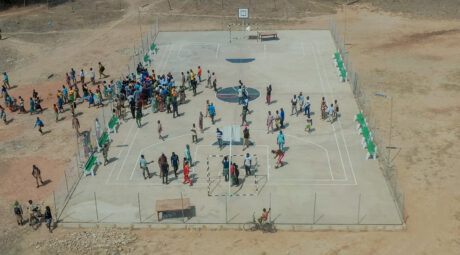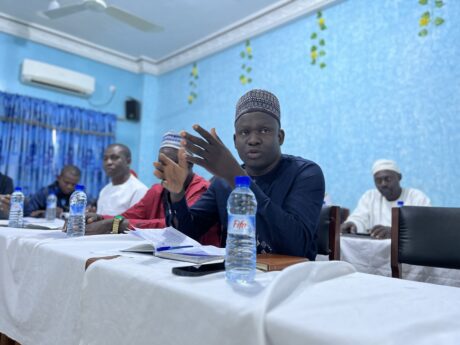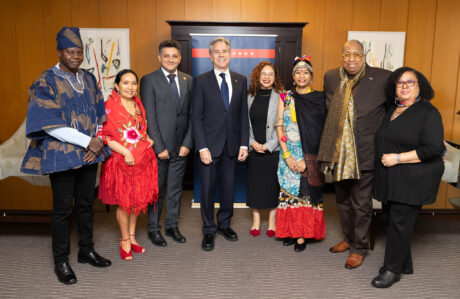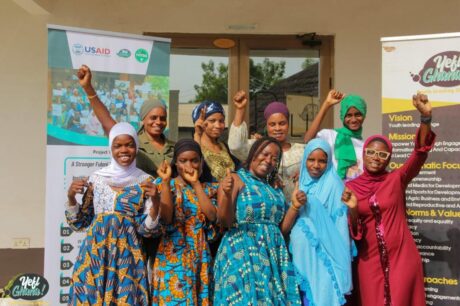Effective communication is crucial for mitigating conflict in communities. No entanto, in impoverished and remote areas with low literacy rates and limited connectivity, communication channels are often inadequate.
Amplio Network has developed a way to overcome these obstacles through Talking Books—durable, cost-effective battery-powered audio devices designed for people with low literacy.
Creative Associates International has partnered with Amplio Network as part of USAID’s Escritório de Iniciativas de Transição (FEITO) efforts to build resilience against extremism in coastal África Ocidental under the Littorals Regional Initiative.
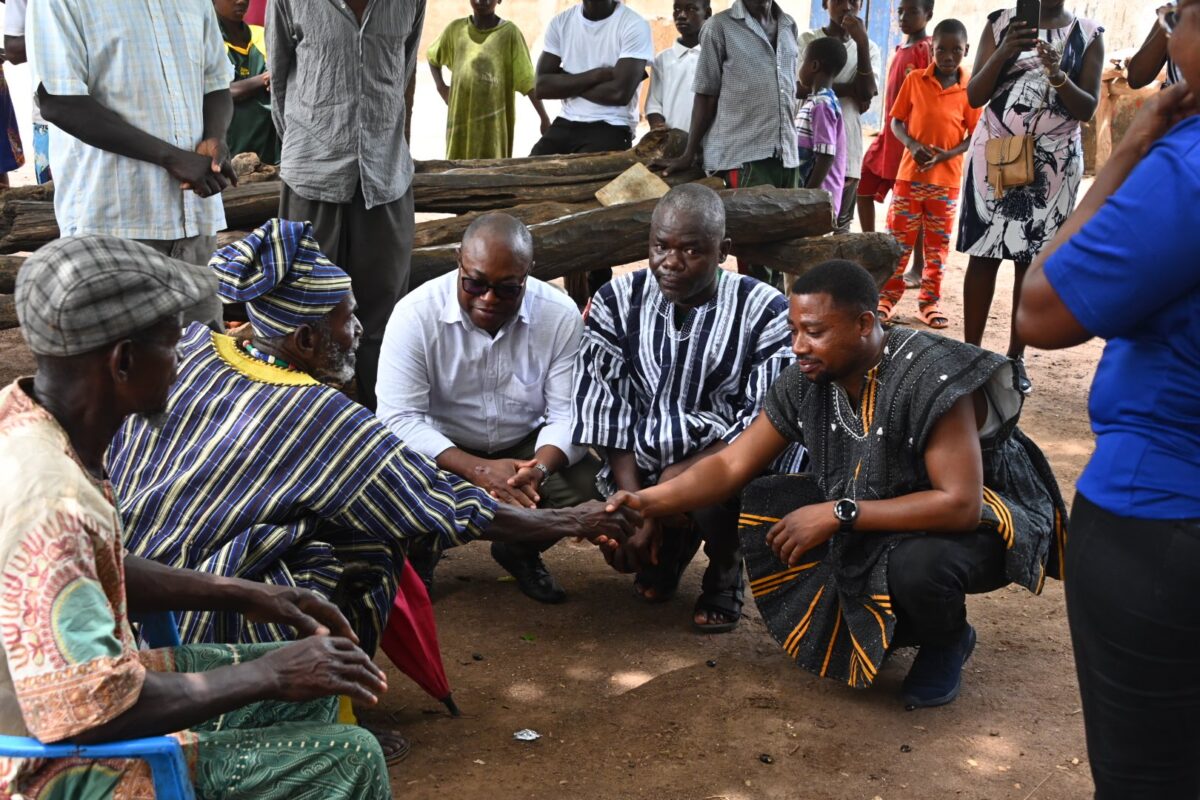
Em Gana, o Iniciativa Regional Litoral is promoting positive behaviors in 12 rural communities in Ghana’s Upper West Region that face heightened risks of conflict due to their proximity to Burkina Faso and Côte d’Ivoire. Em maio 2023, Creative partnered with Amplio Ghana to use Talking Books to deliver content to members of the Fulbe minority and other ethnic groups. The messages aim to discourage residents from stereotyping others based on their ethnic group while encouraging friendships between people of different communities.
Amplio Ghana’s Programs Coordinator, Fidelis Da-uri, has been using the Talking Book technology to promote social and behavior change since 2012. Da-uri told us more about how Amplio’s work can help promote peace and social cohesion.
What kind of challenges do border communities in Ghana’s Upper West Region face?
The Upper West Region is known to have several mineral deposits and suitable lands for cattle pastoralists. Nos últimos cinco anos, an influx of miners and Fulbe herders seeking grazing lands has led to heightened tensions in the region. Farmers assert certain lands were designated for agriculture, and the Fulbe should respect those boundaries. De forma similar, conflicts arise as community members and herders compete for limited water resources.
Também, across most of the districts, there are chieftaincy disputes [competing claims to leadership posts], land disputes, inter-ethnic conflicts and periodic clashes between host communities and youth groups engaged in mining. Como resultado, there was a growing sense of fatigue among the conflict-risk communities to deal with the situation before the situation would degenerate into violent conflicts.
Tell us about Amplio’s project under the Littorals Regional Initiative.
The Littorals Regional Initiative targeted programming that reduced windows for violent extremist expansion by training trainers, conducting community-level social mobilization activities, and using Amplio Talking Books. O 12 communities we worked in were Cherikpong, Takpo, Naville, Nanga, Tangasie, Pido, Sampina, Basissan, Banu, Wuru, Tanla and Nitalu in the Nadowli/Kaleo and Sissala East districts. It was a wonderful partnering with Creative on this project, and I foresee more future partnerships.
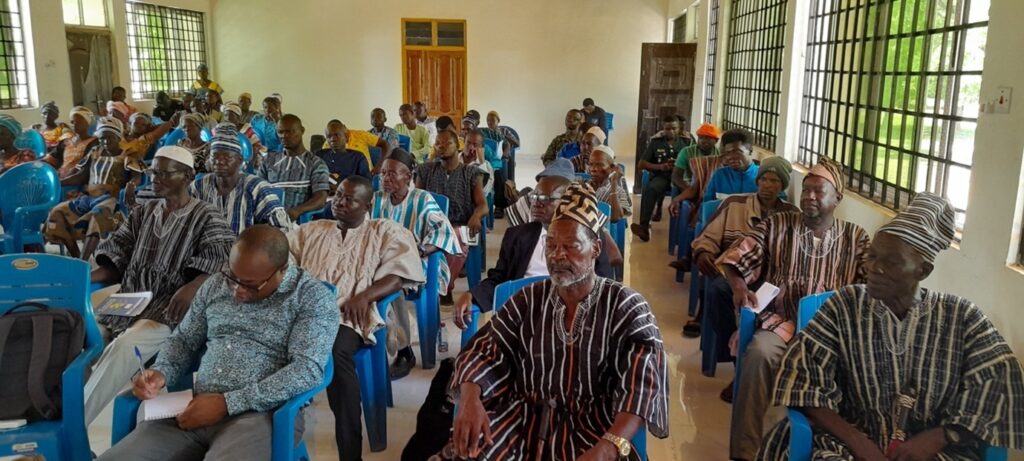
What was the project’s goal?
This project sought to reduce the vulnerability levels of people living in conflict-risk border communities by addressing the conditions contributing to tensions and potential conflict situations. Using social and behavioral change approaches, we promoted changes in behaviors and enhanced interactions among traditional leaders, membros da comunidade, high-risk youth groups (miners) and minority groups (Mossi and Fulbe) leading to the adoption of best practices for peaceful co-existence in the target communities.
We distributed a total of 180 Talking Books to 80 groups in 12 comunidades. Groups listened to messages weekly in their group meetings. Members also took the devices home on a rotational basis, allowing them to listen with their families.
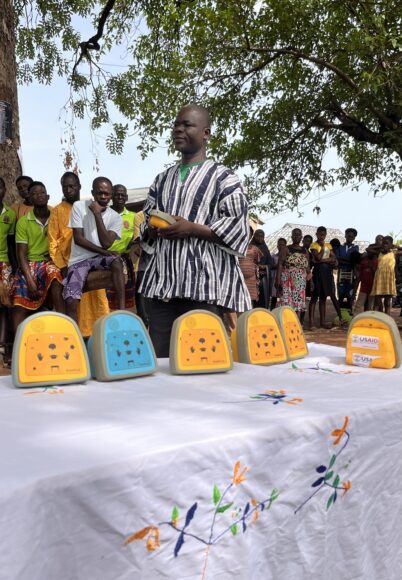
The audio content covered messages on the effects of conflicts on our community development, alternative dispute resolution methods at the community level, resolving chieftaincy and land disputes, breaking stereotypes, embracing the ethnic Fulbe and Mossi communities, prevenção do extremismo violento, and guidelines for high-risk groups and Fulbe herders to conduct their activities in a responsible and respectful manner.
We recorded the content in four local languages to overcome the challenge of low literacy levels among the target audiences.
We directly engaged the various stakeholder groups in dialogue sessions to discuss the issues affecting them—factors undermining peaceful co-existence—and supported them in developing action plans for achieving violence-free communities. Além disso, we supported the communities to establish conflict mediation committees comprising representatives of the respective stakeholder groups to address any potential conflict situation.
Por último, we used participatory performance methodology to monitor and document evidence of achieving the violence-free action plans including people’s perception of the security situation. Stakeholders were happy to learn that we used their feedback collected through the Amplio Talking Books and dialogue meetings to improve and strengthen the violence-free action plans.
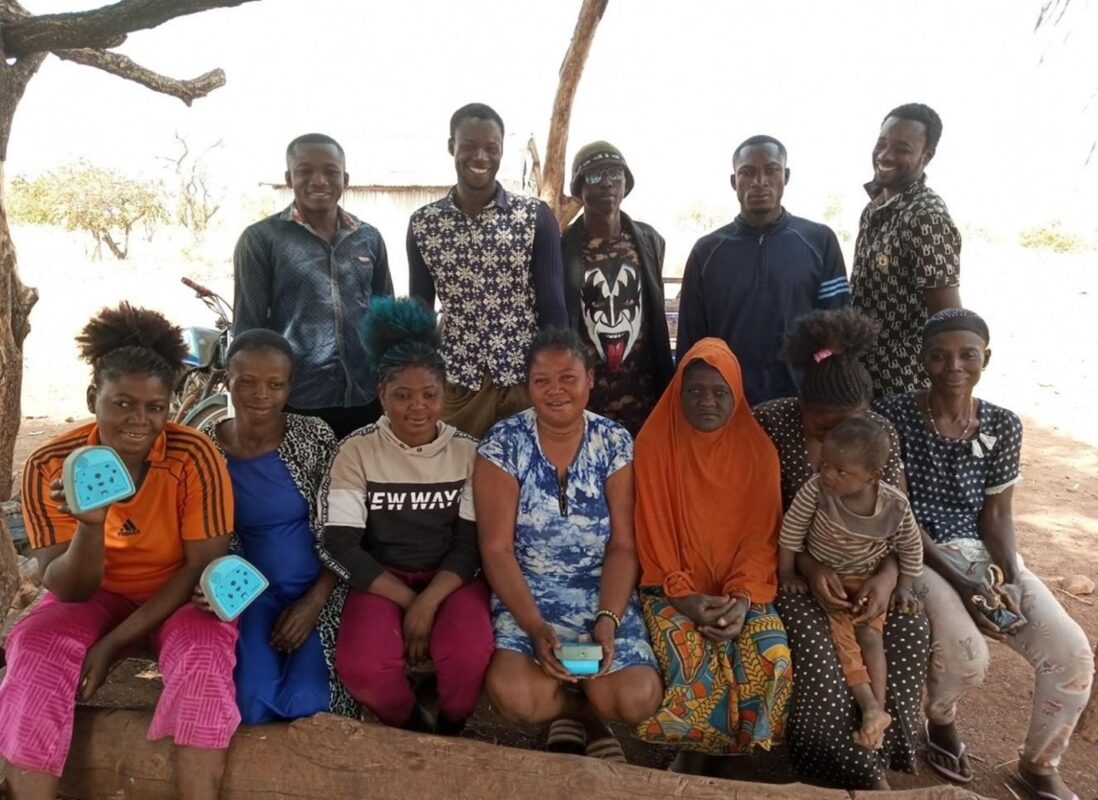
Can you share some key takeaways from the project?
Amplio Ghana’s intervention in the 12 communities yielded notable impacts. There has been a decrease in conflicts between farmers and herders, coupled with the formation and training of conflict mediation committees to resolve or refer conflicts when needed. Action plans were recorded in audio formats, enabling communities to address conflicts effectively. Além disso, the project has witnessed a decline in household and community-level disputes, indicating positive behavioral changes.
A crucial learning from this initiative is the importance of nurturing community ownership and ensuring access to information.
Can you talk about sustainability?
The LRI project was designed with sustainability in mind to ensure its positive impacts continue beyond the project’s lifetime. A key focus was on building local capacity and ownership through activities like training of trainers programs to equip community members with skills to lead discussions and mobilization efforts themselves.
By equipping communities, líderes tradicionais, youth groups, Fulbe people and farmers with relevant information on conflict prevention, the aim is for them to be able to independently continue the work of promoting positive behaviors and social cohesion and preventing violent extremism after the project comes to an end.
